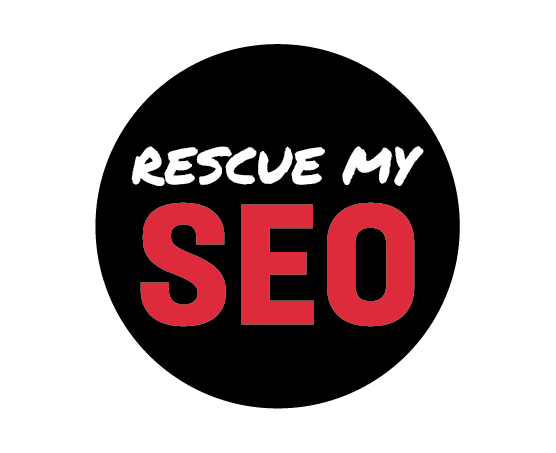
Small business owners are always looking for cost-effective ways to get noticed online, attract new clients, and build trust in their communities. One of the most overlooked (but proven) levers for all of this is blogging for SEO. At Rescue My SEO, we’ve seen many small local businesses transform their websites from virtual ghost towns to hubs of organic search traffic simply by getting strategic about blogging. But does blogging really help small business SEO? Let’s dig into why it works, what gets real results, and exactly how you can tap into this opportunity.
How Blogging Impacts Small Business SEO
- Expands what your business can rank for: Every blog post is another door into your website for people searching on Google. When you blog, you can target new keywords-beyond just your homepage and service pages-and show up for a wide range of relevant terms.
- Keeps your website fresh: Google likes to see that your business is active and alive. Frequent blog updates send freshness signals to search engines, which can help boost overall rankings.
- Targets “long tail” local and buyer-intent queries: Blogs let you hone in on specific questions or problems your real-world customers have, such as “How much does tree trimming cost in Pittsburgh?” or “Is daycare safe for newborns?” These long-tail searches are less competitive-but often easier to convert.
- Earns backlinks and shares: Valuable, well-written articles are more likely to be shared by readers and referenced on other websites, generating inbound links. This builds your domain’s authority, which is a big part of Google’s SEO formula.
- Gives you content for everything else you do online: Blogs can be repurposed for social posts, newsletters, Google Business Profile updates, and more-helping activate your whole digital footprint.
What Google Looks for in Blog Content (and How to Deliver It)
Not all blogs are created equal. For blogging to help your small business SEO, your content should:
- Be truly useful and original: Answer questions your ideal customers are asking-not just repeating generic industry fluff.
- Target real keywords: Do some research (even with free tools like Google Keyword Planner). Choose topics with search volume that are directly related to your business, location, or customer needs.
- Be detailed, not superficial: In most industries, blogs that really rank are 800-1200+ words. Long enough to cover the topic thoroughly and be worth Google presenting to a searcher.
- Include engaging formatting: Use short paragraphs, bulleted lists, bolded subheadings, and relevant images to make information skimmable and helpful.
- Link internally and externally: Link to your own service/product pages, as well as to credible external authorities-this helps Google understand the context and value of your content.
- Optimize for local intent: If you’re a local business, mention your city/region naturally in your posts and provide information that is locally relevant (e.g. events, weather, regulations, local partnerships).
Step-By-Step: How We Approach Blogging for Real Small Business SEO Results
- Start with a list of customer questions and local keyword topics. Write down everything new customers ask you, search for those questions on Google to see what comes up, and look for related auto-suggested queries. Supplement this with keyword research tools for volume and competition insights.
- Create an editorial calendar. We recommend small businesses publish at least 2 in-depth blog posts per month. Sticking to even this modest cadence makes a major impact over a year.
- Write with detail and depth. When tackling a topic (for example, “Affordable SEO services for Pittsburgh businesses”), don’t just define terms. Show real-world examples, offer step-by-step checklists, or create how-to guides your audience can’t find elsewhere.
- Optimize for SEO-but be natural. Use your target keyword in the title, first 100 words, at least one subheading, image alt text, and several times in the body-but never force it. Always write for your customer first, search engines second.
- Link wisely. Each blog post should link to 1-2 other relevant pages on your site (such as your core services or an earlier blog post), as well as to authoritative, non-competitive sources when it helps the reader.
- Add images (when relevant). Whether it’s photos of your real-world work, team, or community events-original imagery boosts engagement. Image alt tags should describe the image and, if relevant, include your target keyword.
- Promote and re-promote your posts. Share your blogs on your social pages, email list, and Google Business Profile. Don’t be afraid to reshare older but still-helpful content months later-especially if seasonally relevant.
- Measure what’s working and refine. After 3-6 months, use Google Analytics and Search Console to see which blog posts are bringing in search visitors, which are converting into calls, and where you can improve.
Example: Small Business Blogging in Action
If you’re a local daycare center, just having a “Services” page isn’t enough. But blogging on topics like “How to Choose a Safe Daycare in [Your City],” “Top Five Preschool Learning Activities to Try at Home,” or “What Parents Should Know About Daycare Costs in 2025” can:
- Bring you website visitors from long-tail local searches
- Showcase your real-world expertise to nervous first-time parents
- Provide content you can share on Facebook, Nextdoor, and via email
- Generate links if your guide to preschool activities gets shared by local mom groups or parenting bloggers
- Turn blog readers into phone inquiries-especially if you provide a clear call to action or offer a free visit/consultation in your post
How Often Should You Blog?
Consistency is more important than frequency. Our best SEO results come from:
- Publishing at least one high-quality post monthly (two is even better!)
- Never sacrificing quality just to “get something up”-it’s better to publish fewer, better pieces than multiple shallow or duplicate posts
- Updating older blog posts with fresh statistics, new insights, and improved formatting (Google loves fresh, updated content-even if it is an older URL!)
Common Blogging Mistakes Small Businesses Make
- Writing only about themselves. Nobody wants to read a blog that is simply press releases or internal news. Focus on your customer’s needs and questions first.
- Not using keywords at all, or using them awkwardly just for SEO. Strike a balance: target keywords naturally, but prioritize the user’s experience and value.
- Letting blogs get buried in the site menu or not organizing them well. Always feature your latest or most helpful blogs prominently on your homepage and relevant landing pages.
5 Quick Wins for Small Business Blogging Today
- Compile a FAQ post: the 10 questions your team gets most often (each answered in detail). These rank for multiple long-tail local searches.
- Write a “best of” or “2025 trends” article for your field in your area-people search for these every year.
- Invite a happy client or local partner to provide a quote or insight for a blog post-original contributions help your SEO and your reputation.
- Add a blog call-to-action: at the end of each post, gently let readers know what the next step is (call, email, free quote, etc.).
- Refresh your most successful old blog with new stats, updated advice, and more links to your current service offerings.
Blogging for SEO: What Makes Rescue My SEO’s Approach Unique?
We don’t just give you “content ideas.” At Rescue My SEO, every blog plan is built out of real keyword research, analytics from your website, and what we know converts visits into calls and sales for businesses just like yours. We focus on things normal SEO agencies overlook:
- Locally tailored content strategies, addressing your unique market and city
- Connecting blog posts to your key sales pages for better rankings on high-value keywords
- Tracking blog performance and continuously improving based on what Google (and your customers) respond to
- Content that’s just as useful shared on social media, in Google Business posts, and your email list as it is for SEO
Is Blogging Worth It? Realistic Expectations
If you commit to blogging for at least six months-focusing on quality, strategy, and consistency-you could see:
- 2-4x increase in organic website traffic
- More qualified leads-people searching for exactly what you offer
- Improved local map rankings (when you interlink blogs with Google Business Profile updates)
- Higher trust from referrals and existing clients (because your blog helps answer their questions, too!)
Results compound over time. The more you invest now, the longer the benefits last-even if you slow down later, your ranking blogs can keep bringing in traffic for years if you update them regularly.
Your Next Step: Get Started or Get Help
Blogging isn’t magic, but when it’s done right-with a focus on real customer needs and strong SEO fundamentals-it’s one of the best long-term investments a small business can make. If you’d like help planning topics, creating optimized blog content, or want a complete monthly SEO + blogging package designed for small businesses, reach out to our Rescue My SEO team. We’re passionate about helping small businesses win in search by creating blogs that work-not just fill space.


